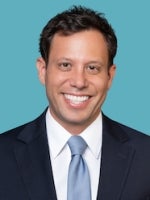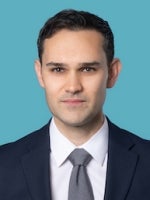Like in all areas, the Trump Administration is bringing about great change, although the contours of the shift in white collar enforcement policy are less clear than in other places. It is clear, however, that this is an administration that will be less inclined to prosecute corruption and white collar crime.
A recent Department of Justice memorandum setting white collar enforcement policy by Criminal Chief Matthew Galeotti provides little substance aside from setting out three core tenets—focus, fairness, and efficiency. That these feel like the product of an AI chatbot or could be found in any entry-level management course is intentional and falls in line with an administration enamored with using uncertainty. The generality of the tenets grants the President and the Attorney General ample room to bend prosecutorial discretion in whatever direction serves the moment.
The DOJ’s slow start in identifying any white collar priorities has been understandable. While on the campaign trail, the President placed immigration, transnational criminal organizations, and fentanyl at center stage, and continued to hammer these themes from Inauguration Day on. Moreover, FBI Director Kash Patel stated almost immediately after being confirmed that the agency would focus on violent crime in order to return the agency to its Prohibition-era roots. Aside from repeated promises to tackle “fraud, waste, and abuse” and a DOGE-sized detour, there has thus been little oxygen left for the traditional fraud investigation at the core of white collar enforcement. So, what do these tenets generally mean for the practice going forward?
First, look for less complex corporate and individual prosecutions resulting in a smaller number of headline trials. This is clear from the goals Galeotti’s memorandum articulates, and also a byproduct of other trends, including an unprecedented wave of departures from the DOJ. Regardless of the underlying reasons, the loss of so many veteran prosecutors will leave a vacuum of the necessary expertise and deep institutional knowledge to navigate long-term and wide-ranging investigations. With new prosecutors being assigned mostly immigration cases out of the gate, that expertise will not return anytime soon, nor will trial teams have additional resources to rely on when most needed. For those investigations that do get off the ground, Galeotti’s memorandum urges prosecutors to act expeditiously under the guise of efficiency when making charging decisions. This will condense the timeline before a more complex case can develop organically.
On the tenet of fairness, expect generally less criminal enforcement of corporate misdeeds, especially those of a more regulatory nature. The memorandum’s language calls on prosecutors to essentially give the benefit of the doubt to corporations that are “willing to learn from their mistakes.” Whether those in the C-suite will truly be able to take the first pitch looking may depend on other factors, but it certainly dovetails with the DOJ’s early commitment to shifting traditionally criminal investigations into the civil arena, where the transactional nature will surely satisfy the President’s disposition and Congress’s desire for pro-growth policies. The DOJ has already taken this step explicitly with respect to the Foreign Corrupt Practices Act in a move that the President openly stated would “mean a lot more business for America.”
Second, as to the focus of those investigations and prosecutions prosecutors do bring, the number one area, according to the memorandum, is unsurprisingly, “waste, fraud, and abuse.” Amongst the other top priorities identified, Gaelotti notes trade and customs fraud, fraud conducted by variable interest entities, Ponzi schemes, and others directly involving U.S. investors, and fraud involving national security. As the headlines strongly indicate, criminal enforcement of immigration and matters involving the undocumented will take extreme precedence, although they typically fall outside of the realm of fraud.
Distilling these priorities and some of the DOJ’s early moves, one can see two prominent efforts emerging from fraud prosecutors over the next year or so that fit comfortably within these three core tenets. On a more traditional front, Medicare and Medicaid fraud are very likely to continue to be a priority. Given the ballooning numbers of Americans served by these programs, the opportunity to commit fraud has risen exponentially, and thus, it is a logical area where the goals of the administration are likely to align with prosecutorial priorities. Prosecuting cases of fraud by healthcare professionals and drug distributors, especially, would serve a secondary role in defending cuts to federal healthcare spending or even shifting part of the cost burden to the states. Notably, this would continue the trend from past years as the Biden and first Trump Administration put significant resources and headlines behind these investigations.
Third, expect to see more investigations into local governments’ use of federal funds. In the Central District of California, this has already occurred with the new U.S. Attorney’s Homelessness Fraud and Corruption Task Force, which was announced in April 2025. Tasked with determining whether federal funds have been misappropriated by the City of Los Angeles’s leaders and misused by recipients, the new task force can kill two birds with one stone by acting as a quasi-DOGE faction while also prosecuting fraud, if it is ever found. Expect more of these initiatives to be announced. Already, Chicago has seen a freeze in $1 million specifically earmarked for counter-terrorism efforts, which came on the heels of a threat to freeze all of the nearly $2.7 billion the city receives from the federal government. Such moves are a precursor to investigations and well-publicized strike forces such as the one already announced in Los Angeles.
Similarly, non-profit groups receiving federal funding should anticipate greater scrutiny, and more so when those groups’ stances run counter to the Administration’s messaging. Those skeptical that the Administration would act with this much zeal need only to look to executive orders levied against law firms, educational institutions, and even the Democrats’ major fundraising platform, ActBlue.
Of course, these trends can shift quickly. It was only two months ago that Attorney General Pam Bondi thanked Elon Musk for discovering significant levels of fraud and warned future defendants that the DOJ was “coming after you.” One notable assertion Musk made that same day was that the Small Business Association had improperly doled out $330 million in loans to minors, including a $100,000 loan to a “nine-month-old.” With the passage of time, and potentially that would-be defendant now having taken their first steps, Musk has now formally stepped back from the DOGE, and the headlines covering his allegations have quieted. Yet, at least for the time being, the inclination to repeatedly assert fraud, waste, and abuse has not lost its preeminence in government or amongst the Administration’s most fervent supporters, and it will no doubt still hold some position within the DOJ. When and if the Attorney General will bring criminal prosecutions in larger numbers is anybody’s guess, but at least we now know that as a matter of DOJ policy, the process underlying them will be focused, fair, and efficient.




 />i
/>i
